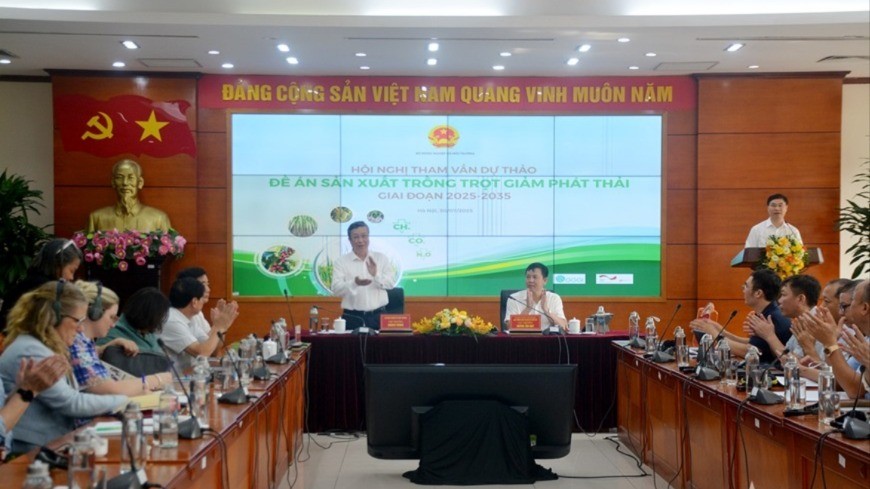
Conference scene at Hanoi bridge point.
To complete the contents of the Project before promulgation, the Ministry of Agriculture and Environment organized a conference to consult experts, relevant units and organizations for the draft Project.
According to the 2020 greenhouse gas inventory calculated by the Institute of Agricultural Environment, Vietnam's total greenhouse gas emissions reached about 454.6 million tons of CO₂ equivalent (CO₂tđ), nearly double that of 2010, of which the agricultural sector accounted for about 116.51 million tons of CO₂. Without a comprehensive solution, old farming practices will not only have a negative impact on the environment, but Vietnam's agricultural production will also face many barriers from the international market, as requirements for emission reduction, sustainability certification and carbon traceability become increasingly stringent.
The general objective of the “Project on reducing emissions in crop production for the period 2025-2030” is to synchronously deploy solutions to promote the transformation of crop production systems towards low emissions, adaptation to climate change, increasing income, improving livelihoods for people and sustainable development. Thereby helping to improve the competitiveness of the crop industry, ensuring national food security, gradually forming a modern, ecological agriculture that is resilient to the impacts of climate change, contributing to the implementation of Vietnam's commitments in the NDC.
Ms. Nguyen Thi Thu Huong, Deputy Director of the Department of Crop Production and Plant Protection (Ministry of Agriculture and Environment) shared: The project will build and develop the "Low Emission" label for products of the crop industry. Organize the implementation of at least 15 emission reduction production models in ecological regions, with the ability to replicate; pilot at least 5 farming models capable of developing carbon credits that meet the requirements of international organizations. Develop and issue at least 5 emission reduction production technical packages applicable to 5 key crops.
The economic , environmental and social impacts of the Project are clearly assessed. Specifically, applying techniques such as alternate wetting and drying (AWD), proper fertilizer management, and the use of biological materials will help reduce input costs by 5-15% compared to conventional farming (especially evident in rice, sugarcane, and coffee).
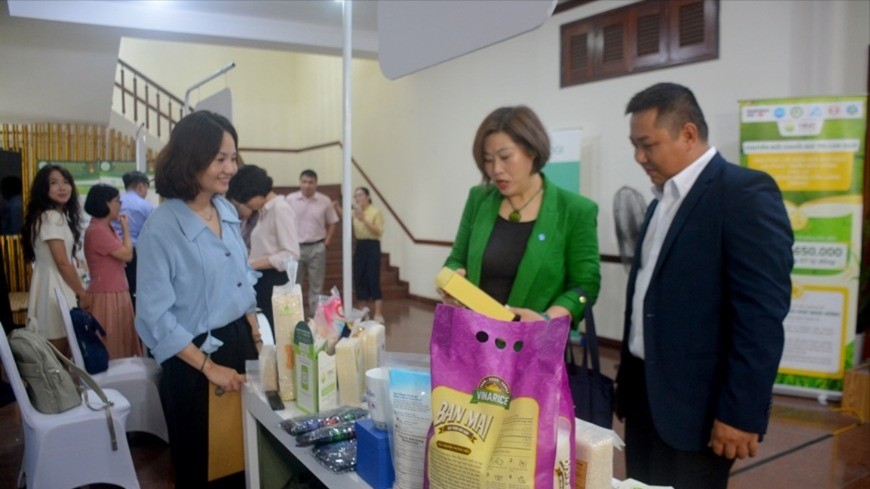
Speaking at the opening of the conference, Deputy Minister Hoang Trung said that agricultural cultivation in the past created a large source of greenhouse gas emissions. Therefore, changing the form and practice of agricultural cultivation to reduce greenhouse gas emissions is posing a challenge, requiring the agricultural sector to have appropriate cultivation solutions to minimize greenhouse gas emissions, especially in the field of crop cultivation.
In order for the project to be truly feasible and put into practice when issued, the Deputy Minister expressed his hope that delegates would focus on contributing to the project to reduce emissions by at least 10% of total emissions from the agricultural sector, focusing on key crops such as rice, corn, sugarcane, etc.
Source: https://baolaocai.vn/trong-lua-mia-ca-phe-giam-phat-thai-giup-giam-chi-phi-dau-vao-5-15-post650112.html





![[Photo] Prime Minister Pham Minh Chinh attends the 5th National Press Awards Ceremony on preventing and combating corruption, waste and negativity](https://vphoto.vietnam.vn/thumb/1200x675/vietnam/resource/IMAGE/2025/10/31/1761881588160_dsc-8359-jpg.webp)

![[Photo] Da Nang: Water gradually recedes, local authorities take advantage of the cleanup](https://vphoto.vietnam.vn/thumb/1200x675/vietnam/resource/IMAGE/2025/10/31/1761897188943_ndo_tr_2-jpg.webp)
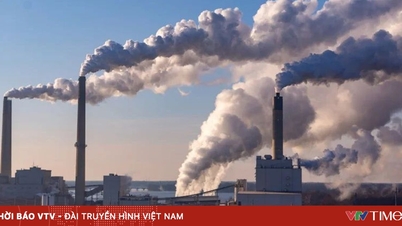

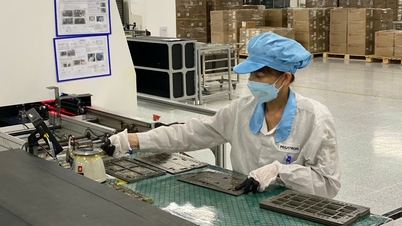

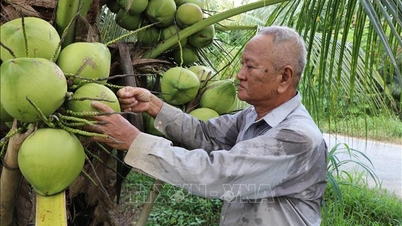






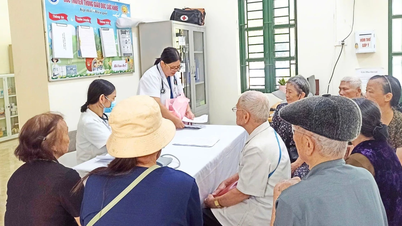
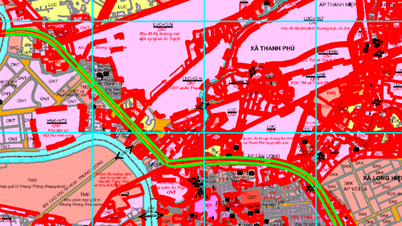



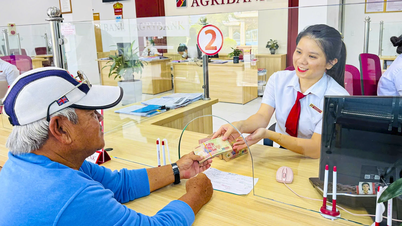

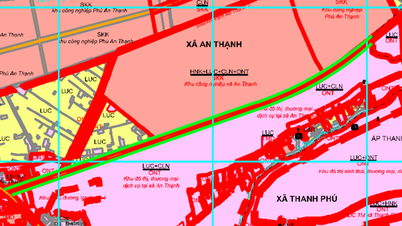




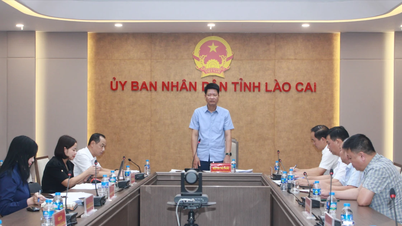

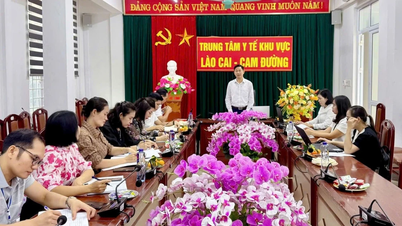
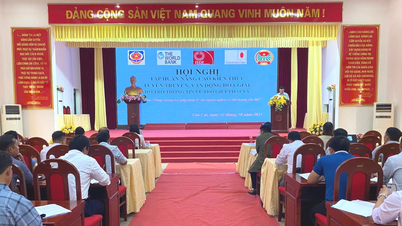
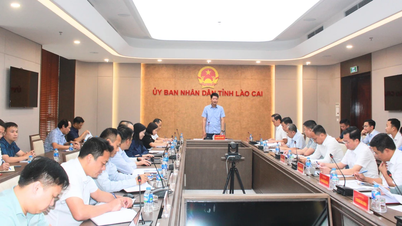
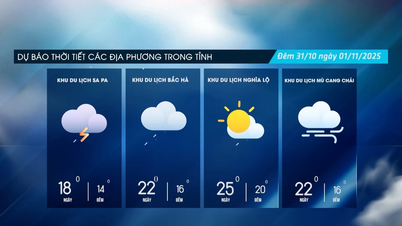





































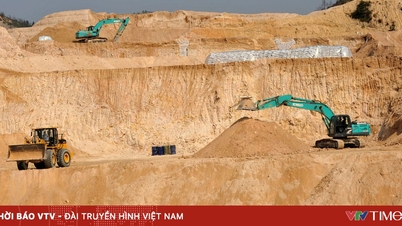


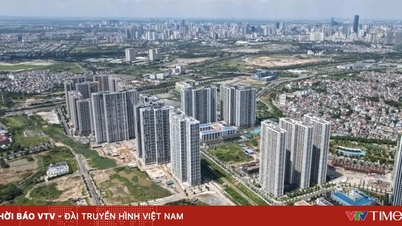





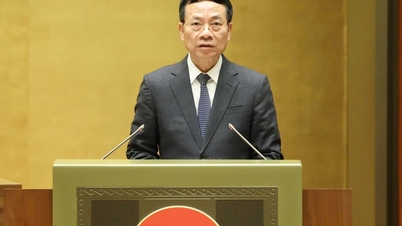
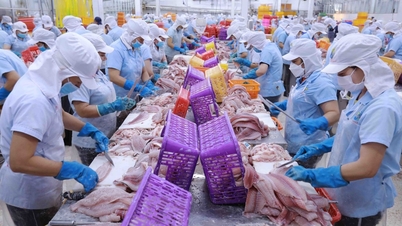
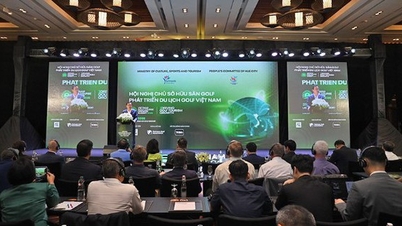

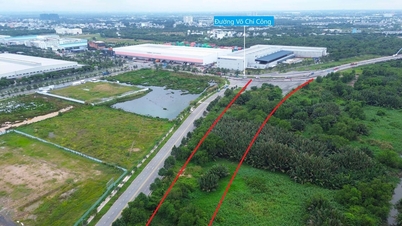

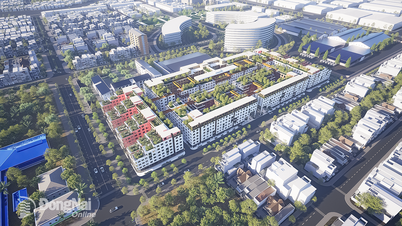
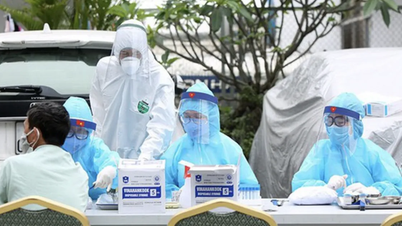
















Comment (0)